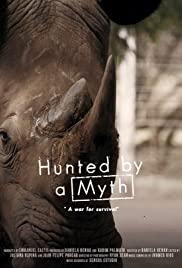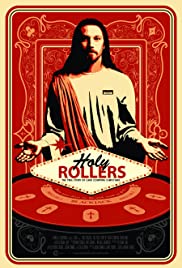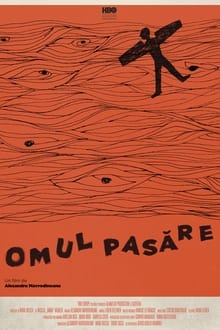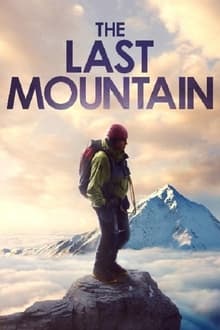
The story follows an anti-poaching ranger in Zululand Reserve in his fight to save rhino’s at the peak of the poaching season. As he is alerted of another mother rhino massacred for her horn, he now turns his full focus to finding a rhino cub that will die if not saved in the next 24hrs. This documentary highlights not only the importance of stopping the massacres of rhino poaching but the hope of saving the young and the species in the future by coming together and mixing all efforts that allow the rhinos to stay alive.
You May Also Like

In this true-life twist on a holiday fable, Jeremy Morris brings a whole new meaning to Christmas spirit when his extravagant seasonal display sparks a dispute with his neighbors that lands them all in court.

Andreea Raducan, a successful 32-year-old woman and one of Romania’s greatest gymnasts, sacrificed her childhood to become an Olympic champion. She finally won the all-round Olympic gold medal in Sydney in 2000, but was stripped of it three days later after testing positive for a doping substance contained in a flu tablet her doctor had administered to her minutes before she entered the competition. Fifteen years later, Andreea is fighting the toughest fight against the people who deceived her, as she tries to recover her medal and, along with it, her dignity.

Follow the rise of the largest and most well-funded blackjack team in America — made up entirely of card-counting, churchgoing Christians. The players don’t see blackjack as a sin; they take from casinos and give to their families and churches.

The salsa runs hot as these lusty Latinas show you the true meaning of la vida loca. The sun drenched, lush locations of Central America provide the perfect setting for your glamorous cover models to share their intimate, erotic moments, showing all they have to offer … and then some.

In September 2022, a 22-year-old Iranian woman, Mahsa Amini, died in police custody. She had been arrested by Iran’s religious police, accused of not wearing her hijab properly. The authorities said she had died of a heart attack, but rumors spread that she had been beaten on arrest. Citizens took to the streets in their thousands in fury. This is an extraordinary and shocking insight into what has been happening across Iran, revealing a regime under huge pressure and resorting to extreme cruelty to control its citizens.

Correspondent Lisa Ling manages to penetrate its border by travelling undercover, pretending to work with a Nepalese eye surgeon on a humanitarian mission. Lisa’s time in North Korea offers a rare glimpse of everyday life in the country and some of the issues its people face.

An old aviator fights to stay in the air. Whether he wins or not, his participation will mark a new record for aviation and will allow one more armistice in his battle with time.

Go inside the real-life legal drama facing the husband of “The Real Housewives of Beverly Hills” cast member Erika Jayne, legal titan Tom Girardi. Once considered a crusader of justice, Girardi now stands accused of embezzling from the victims he swore to protect.

The pursuit of knowledge regarding ancient mystical anomalies, technology and the extraterrestrial connection has produced stunning new revelations that alter the perceptions of our past by scientists and researchers. Documentation of early humans subjected to abductions and surgical examinations by interdimensional beings, a mysterious mausoleum capable of time travel, a second-century old map revealing shocking discoveries and pre-ordained predictions of future events substantiate the claims that planet Earth holds many secrets that must be probed.

Under the shadow of Mount Kenya, young Maasai Warriors have remarkably formed a cricket team. In a community deep with tradition, where female genital mutilation (FGM) is still a rite of passage, these young Maasai express their frustrations at inequality by smacking cricket balls on the plains of Kenya and dreaming of life beyond their own village. Thus begins a journey all the way to England; the home of cricket. It is a journey which gives the Warriors the courage to face their elders in the hope of ending FGM.

An Accidental Life is a deeply personal and vulnerable portrait of Quinn Brett, an ambitious, record-setting climber who strives to make meaning out of tragedy in the years following a near-fatal rock climbing accident on El Capitan that left her paralyzed.

The compelling story of 30-year-old climber Tom Ballard who disappeared on one of the Himalayas’ most deadly mountains, Nanga Parbat, in February 2019. Tom was the son of mountaineer Alison Hargreaves, who perished on K2 in 1995. Mother and son, two of the greatest climbers of all time, died at almost the same age in neighbouring mountain ranges, both doing what they loved best. They now lie forever encased in the ice of two of the world’s highest mountains. Left behind to cope with the enduring tragedy are Tom’s sister, Kate, and their father, Jim.